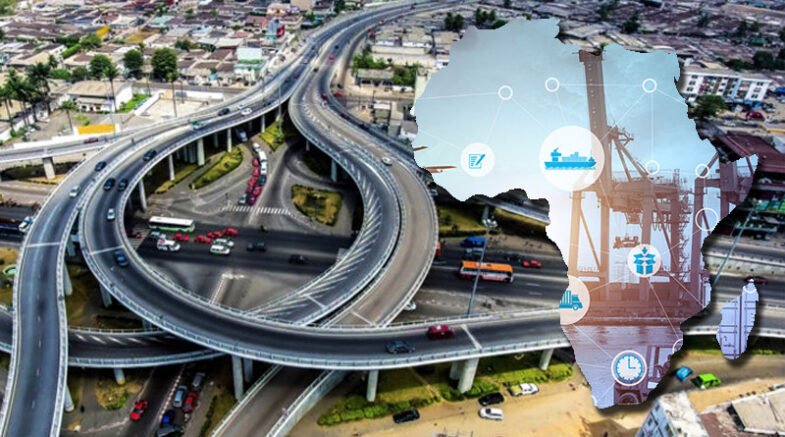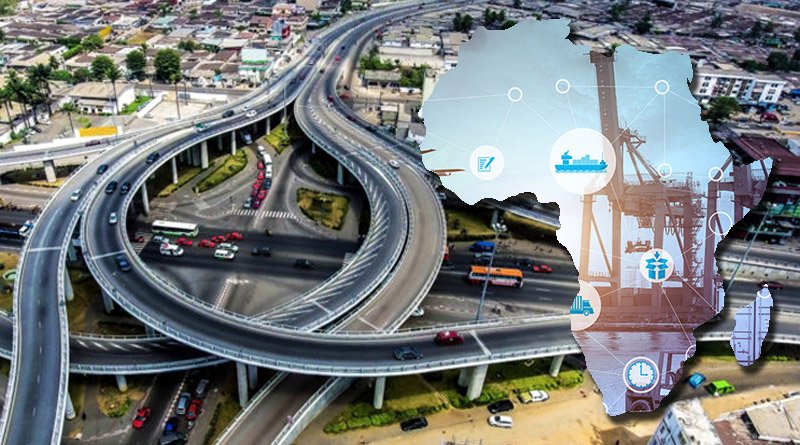According to Rand Merchant Bank (RMB), intra-African trade could increase by up to 30% over the next five years, thanks in part to digitization and blockchain.

The past two years have seen unprecedented supply chain disruptions in the global logistics industry, including port closures, high freight costs, staff and material shortages, and geopolitical crises. These issues have highlighted the need for resilience and adaptability to be built into the supply chain and exposed weak spots.
Logistics operators must make use of the tools and technologies at their disposal to anticipate and avoid potential sources of disruption, such as changes in the price of oil and geopolitical tensions. The pandemic has highlighted the value of data and transparency in supply chains. Thanks to a trustworthy data system, businesses can quickly pinpoint issues and disruptions, put fixes in place, and forecast the future.
Sensors, dashboards, and other data-collection devices and technologies are being adopted by industry to harness structured and unstructured data streams in order to improve end-to-end supply chain visibility.
By gathering and using the right data, logistics companies can develop and implement optimised strategies along supply chain segments, increase visibility, and improve service levels. Big data analytics is expected to become commonplace within the next five years.
According to Rand Merchant Bank (RMB), intra-African trade could increase by up to 30% over the next five years, thanks in part to digitization and blockchain.
In terms of documentation, Africa’s logistics industry is still largely paper-based. By implementing digital alternatives for customs clearance and other processes, trade can be streamlined, resulting in lower administrative costs and increased efficiency.
Blockchain technology has the potential to help remove many barriers to international trade, similar to how the African Continent Free Trade Agreement (AFCFTA) allows for the free and easy flow of goods, capital, and information across national borders.
Trade finance, track-and-trace, customs cooperation, transportation management, and procurement are examples of these. Such benefits significantly lower trading barriers, providing a financial incentive to put them in place as soon as possible.
According to estimates, supply chains account for roughly 60% of total global carbon emissions and 90% of emissions associated with a specific product. There is undeniable pressure for more sustainable supply chains as consumers demand sustainable goods and services, legislation requiring transparency takes effect, and nations strive to achieve net zero emissions by 2050.
To accomplish this, the logistics industry will need to adopt new technologies and methods. In the coming year, circularity will become a major trend. At the moment, only 8.5% of the materials used by society are recycled or reused.
Logistics organisations are looking to take advantage of opportunities in all segments of the supply chain to meet customer expectations and achieve sustainability goals. In the African logistics industry, robotics and automation are still in their infancy but are showing signs of promise.
In South Africa, we are considering introducing additional technologies, such as robots to assist employees in lifting heavy cargo and wearable eyeglasses to scan parcel barcodes. People and robots will collaborate in these logistics warehouses of the future to deliver goods quickly and effectively.
These collaborative robots will be critical for increasing worker safety, productivity, and customer satisfaction.
Machines will not replace humans in the workforce; rather, they will supplement it, especially in repetitive and manual tasks. This should make jobs safer and more focused on high-value tasks. These positions are more appealing, attracting more people to the workforce, which benefits both employers and employees.
Several factors limit the African region’s economic growth opportunities, and the logistics industry has little influence over several of them. However, if the industry acts now to future-proof its supply chains, it has the potential to significantly boost economic growth.
